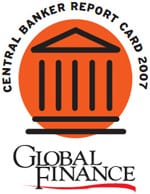 Individually, many of the world’s leading central bankers seemed to be in disarray after the subprime debacle began to unfold in mid-2007. As a group, though, they acted with remarkably unity. The central banks of Europe, the UK and even Japan had been expected to raise rates in either August or September, but, almost universally citing the turmoil in world markets as the reason, all of them delayed their rises. The US Fed’s Ben Bernanke, who had earlier been expected to hold rates steady or perhaps shave off a quarter percent, also chipped in, hacking a half-percentage point off the US central bank’s main lending rate. Only Canada’s David Dodge swam against the tide, announcing an unexpected rate rise just as his peers were focused on loosening monetary policy.
Individually, many of the world’s leading central bankers seemed to be in disarray after the subprime debacle began to unfold in mid-2007. As a group, though, they acted with remarkably unity. The central banks of Europe, the UK and even Japan had been expected to raise rates in either August or September, but, almost universally citing the turmoil in world markets as the reason, all of them delayed their rises. The US Fed’s Ben Bernanke, who had earlier been expected to hold rates steady or perhaps shave off a quarter percent, also chipped in, hacking a half-percentage point off the US central bank’s main lending rate. Only Canada’s David Dodge swam against the tide, announcing an unexpected rate rise just as his peers were focused on loosening monetary policy.
They were perceived by markets around the world to be riding to the rescue of a financial system in distress, but the leading central bankers were also taking a collective risk, betting that the inflationary effects of their accommodative monetary policy would be offset by the pressure that the recent turmoil had brought to bear on their economies. If it pays off, their concerted action will be seen as setting a new paradigm in a globalized world where central bankers work in harmony to stave off widespread financial upheaval. If it doesn’t pay off, we’ll probably see more than a few new faces on these pages next year.
In recent years, the world’s central bankers have given the impression that, by and large, they are a competent bunch and that they are learning from one another’s mistakes and successes to help make the financial world a safer, more stable place. And while there is no doubt that the general standard of central banking is still on the rise, this year’s turbulence has shown that many of them are still a little trigger happy. To their credit, though, mostly they have been able to resist what is often intense political pressure for short-term economic fillips and maintain their focus on their primary function: ensuring the long-term stability of their country’s economies.
Contributors : Antonio Guerrero, Anita Hawser, Gordon Platt and Dan Keeler.
THE AMERICAS
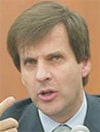 ARGENTINA
ARGENTINA
MARTIN REDRADO
Grade: D
There is little doubt that Martin Redrado’s policies have helped consolidate Argentina’s economic recovery since his appointment in 2004, with steady GDP growth, falling interest rates and strong international reserves. However, he appears to be losing his battle with inflation. Worse yet, Redrado has done little to maintain the central bank’s autonomy. While the Indec national statistics institute reported a year-on-year drop in July inflation to 8.6%, for a 26-month low, analysts charge the agency is underestimating inflation ahead of October’s presidential election. Private estimates show inflation is instead running at near 13%, with the figure expected to be adjusted upward only after the election. Members of Indec’s technical staff sent a letter to a federal judge in July saying they were not responsible for official CPI data releases. Though Redrado admits inflation remains cause for concern, the administration continues to impose price controls to artificially tackle the problem, in what private analysts view as a short-term solution to a long-term ill. Redrado justifies the controls by saying the nation’s economy is in transition mode and that price misalignment is normal. Critics contend Redrado is trying to win political favor.
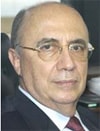 BRAZIL
BRAZIL
HENRIQUE DE CAMPOS MEIRELLES
Grade: B
Meirelles has worked hard to shield the once-vulnerable Brazilian economy from any potential external shocks. He has been helped by some strong fiscal numbers, too. External accounts remain strong, with the nation’s trade surplus hitting a record $20.7 billion during the first half of 2007. The full-year trade surplus is forecast at $44 billion. International reserves are also hitting record highs, at $160 billion in July. The primary budget surplus is expected at 3.7% of GDP in 2007, slightly down from 2006’s 3.9%. A steady decline in inflation has allowed the central bank to continue slashing its benchmark Selic interest rate, which is helping boost economic growth. The markedly improved outlook prompted major international rating agencies to upgrade Brazil’s credit rating this year, with analysts predicting the country may achieve a coveted investment-grade rating by late 2008 or early 2009.
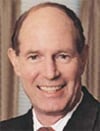 CANADA
CANADA
DAVID DODGE
GRADE: C
Appointed to lead the central bank in 2001 for a seven-year term, David Dodge’s tenure is coming to an end next year, after which he says he will not seek a second term. Many will not mourn his departure, as his style as a central banker has often been more clumsy than deft. Recently, for example, he has been slow to take action in light of the looming impact of a much-heralded US economic slowdown and fallout from mounting global market volatility. In July, as other banks in developed markets around the world were considering cutting rates, the central bank raised interest rates by 25 basis points to 4.5%, marking its first hike in more than a year. The bank based its decision on the fact that the economy continues to be driven by strong consumer spending, particularly on more costly durable goods. First-quarter 2007 GDP growth was 3.9%, followed by a higher-than-expected 3.4% expansion in the second quarter. The central bank was expecting only 2.8%. But Dodge’s timid approach may leave some painful headaches for his successor to contend with next year.
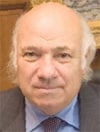 CHILE
CHILE
VITTORIO CORBO
Grade: B-
Corbo, appointed to head the central bank in 2003, gets high marks for standing firm on the bank’s autonomy and maintaining fiscal orthodoxy despite mounting political pressures on president Michelle Bachelet’s administration to increase government spending, particularly on social programs. Bachelet, despite her socialist ideology, has backed Corbo, even as protesters take to the streets of Santiago and legislators from the ruling coalition continue to defect. Critics say the central bank is too fiscally conservative. However, economic data continues to be on Corbo’s side, with high copper prices prompting the bank to increase its 2007 GDP growth forecast to 5.75%-6.25% from a previous prediction of 5%-6%. Domestic consumption is expected to grow by 7.4% this year. However, Corbo seems to have taken his eye off the ball on inflation, which is set to end the year at double the official target rate of 3%. Inflation is now at the highest level in a decade. Corbo may have to become a whole lot more conservative if he’s to tame that beast.
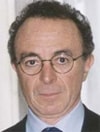 MEXICO
MEXICO
GUILLERMO ORTIZ MARTINEZ
GRADE: B+
Even his critics have a tough time finding fault with Ortiz’s actions at the helm of Banco de Mexico, the nation’s central bank. The country’s economy, though still closely linked to that of the US, which accounts for 80% of Mexican exports, is continuing to grow. The central bank has moved in line with the US Fed but has contributed to improving economic fundamentals to shield Mexico from any adverse external forces. Inflation remains a cause for concern, although it eased enough in July to give hope that it might be back on track toward its official 3% target for 2008. Private analysts predict it will be closer to 3.5%, which is still lower than its highs of above 4% earlier this year. The central bank was initially concerned that rising food prices, which triggered street protests in late 2006, would jeopardize the target. Of more immediate concern is the Felipe Calderón administration’s inability to push through long-awaited fiscal reforms, which led the government to submit a 2008 budget proposal that did not include its initial increased revenue targets.
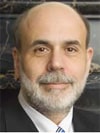 UNITED STATES
UNITED STATES
BEN BERNANKE
GRADE: C
In this summer’s subprime mortgage meltdown, Ben Bernanke faced his first real challenge as US central banker. Unfortunately, his response was somewhat feeble. As America’s financial system seemed to teeter on the brink of disaster, Bernanke vanished from view. Then, from his bunker, he squirted a dose of liquidity into the markets. Sadly, if he was hoping to reassure troubled markets by pumping in liquidity, then he was sorely mistaken: All he did was assure jumpy investors that there must be something very, very wrong that they didn’t yet know about. When he cut rates by half a percentage point in September, he appeared to be reacting to short-term market pressure rather than instituting long-term monetary policy. It was a disappointing performance from a central banker who had hitherto shown himself to be a more-than-worthy successor to Alan Greenspan—who, incidentally, has reemerged into the limelight to assert that a recession is looming. The problem is, Greenspan might be right. The subprime mess could still derail the US economy, and there will be very little the central bank can do about it—even if it wanted to. In Bernanke’s favor is the fact that, while signs of a slowdown abound, the US economy is still growing at an acceptable pace. GDP year-on-year growth was revised upward to 4% in the second quarter of 2007, while inflation appears to be moderating…for now, at least.
EUROPE
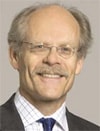 SWEDEN
SWEDEN
STEFAN INGVES
Grade: A
While central banks around the world are becoming increasingly open about their plans for future interest rate changes, Sweden is taking that openness to an extreme. As it announced its most recent interest rate rise, to 3.75% from 3.5%, the central bank also noted that it expected rates to rise to 4.4%. By 2010. That commitment to transparency is reflected in the bank’s website, where visitors to the site are greeted with a handy little widget that displays the country’s inflation rate in real time. Gimmicks aside, Sweden’s central banker, Stefan Ingves, appears to be doing a splendid job. While his gentle tightening of monetary policy since last year has surprised some observers, it appears to be paying off. Sweden is set for another year of sub-2% inflation and steady GDP growth of a shade over 3.5%. Ingves confidently predicts inflation will remain at 2% next year and beyond. If he keeps up his recent record, he may well prove to be right.
 CZECH REPUBLIC
CZECH REPUBLIC
ZDENEK TUMA
Grade: B
Never afraid to stick his neck out, the Czech Republic’s central bank governor Zdenek Tuma courted controversy this year by grumbling publicly that the criteria for joining the euro were at best too strict and, at worst, irrelevant. His comments may themselves be irrelevant as the Czech government’s enthusiasm for joining the euro is waning. The country’s economy has remained strong, turning in a comfortable 6.2% annual GDP increase last year. This year, GDP growth is set to exceed 6% again, according to the central bank’s own forecast. While strong domestic demand is helping the economy grow solidly, it has also helped push inflation to the top of the central bank’s comfort zone. Having sunk from around 3% late last year to less than 2% at the start of 2007, inflation bounced back to over 2.5% in the first quarter of this year. More rises are anticipated in the near future, which might restart the seemingly relentless rise in the value of the Czech koruna—a phenomenon that had appeared to be under control over the past year.
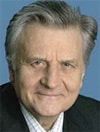 EUROPEAN UNION
EUROPEAN UNION
JEAN-CLAUDE TRICHET
GRADE: C+
If it weren’t for the ructions in the global markets caused by the US subprime mortgage debacle, Jean-Claude Trichet, Europe’s central banker, would be having a relatively easy time of it. At around 2%, eurozone inflation is lower than it was a year ago, and the bank had intimated earlier this year that it expected to raise rates slightly to fend off future upward price pressure. Unemployment has fallen recently, mainly as a result of Europe’s steady, if not spectacular, economic growth. Commendably, Trichet had been on the ball about the potential risks to the financial system stemming from banks’ recent nonchalance toward risk. Unfortunately, the central bank itself had been somewhat nonchalant about the risks. As it became clear that Europe would not be unaffected, Trichet dumped some liquidity into the market, a move that many believe spooked rather than soothed global markets. Trichet also had to shelve plans for an interest rate rise, leaving him with a reactive rather than proactive monetary stance. It will be a while before he appears to be in control again.
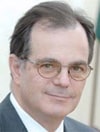 HUNGARY
HUNGARY
ANDRÁS SIMOR
Grade: Too early to say
When András Simor took over from Zsigmond Járai as Hungary’s central banker in March this year, he could hardly have been thrilled. Járai handed him a potpourri of economic woes, including stubbornly high inflation, a currency that was still struggling to recover from record lows against the euro, GDP growth that was the lowest in the region—and slowing yet further—and a hefty unemployment rate. In stark contrast to Járai, who tweaked interest rates five times in 2006 and nine times in 2005, for the first four months in the job Simor sat on his hands. In June he was happy to announce that inflation, while still above 8.5%, was on its way down, and he trimmed a quarter point off interest rates. Although it has retreated from levels reached in the spring, the forint has gained considerable ground on the euro in the past year. None of this is Simor’s doing—he is benefiting from Járai’s last barrage of interest rate rises—and he will have his work cut out to help Hungary’s economy return to stable growth. His low profile and apparent political independence should go a long way in helping him do that.
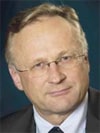 NORWAY
NORWAY
SVEIN GJEDREM
GRADE: B
Svein Gjedrem may be in that rare situation of having too much of a good thing. Norway’s economy is on such a roll now that it is running at or beyond full capacity, creating a surge in inflation that is set to continue well into next year and possibly beyond. While that may sound scary, it’s really not so bad. Inflation’s surge will take it from around 1% to 2% or maybe even 2.5%. The capacity constraints Norway is currently facing were flagged up a year ago by the central bank, which says any inflationary impact from them might well be offset by a surprise increase in both the krone exchange rate and in the levels of imports from low-cost countries. What is perhaps a bigger surprise is that the central bank did not see this coming. Citing possible future inflation, the bank embarked late last year on a gradual tightening of monetary policy. It looks now, though, like it may have done too little, too late.
POLAND
SLAWOMIR SKRZYPEK
Grade: D
Since his appointment in January, Slawomir Skrzypek has done little to inspire any hope that he will prove a worthy successor to Poland’s previous central banker Leszek Balcerowicz. In just eight months in the job, Skrzypek has attempted to block attempts to create a single financial regulator in Poland, he’s backed off from the central bank’s long-standing commitment to bringing Poland into the euro, and he’s shown himself to be far from politically neutral. The contrast with Balcerowicz—who was renowned for his fierce political independence, his outspokenness and his deft touch on the levers of economic power—couldn’t be more stark. It appears Skrzypek lacks even that last characteristic: As inflation crept up from 1% to over 2.5% by June this year, the central bank reacted—perhaps belatedly—by raising interest rates three times. Fortunately for Skrzypek, Poland’s economy appears to be in great shape. After posting a tidy 6% increase in GDP last year, it expects to see another 7% growth this year, and analysts predict inflation will dip back below current levels next year. If Skrzypek can focus on his day job and keep his nose out of politics, there is a chance that rosy scenario might actually be realized.
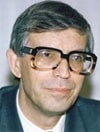 RUSSIA
RUSSIA
SERGEI M. IGNATYEV
Grade: D
Earlier this year, Russia’s perennially low-profile central banker, Sergei Ignatyev, stuck his head over the parapet to say he thought the government should consider spending more of the country’s oil revenues to boost the economy. Given that Russia’s economy is expected to grow by more than 7% this year, up from 6.5% in 2006, his suggestion seems somewhat unnecessary. Add in the fact that growing government spending is fueling inflation, and his comments look misguided. Ignatyev might have been trying to deflect attention from his own problems. No matter how hard he tries, for example, he can’t seem to bring inflation below the bank’s 8% target, while his efforts to moderate the ruble’s steady rise against the dollar have been largely unsuccessful. Observers, including the IMF, have criticized Ignatyev, suggesting he is exacerbating inflation through his efforts to contain the ruble and that his time would be better spent trying to persuade the government to rein in rather than increase its spending.
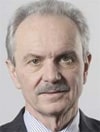 SWITZERLAND
SWITZERLAND
JEAN-PIERRE ROTH
GRADE: B
In June this year, as the global markets were about to wake up to the full extent of the subprime fiasco in the United States, Roth voiced his thoughts on the hugely controversial issue of hedge fund regulation. While he stopped short of recommending hedge funds be regulated, he did say that he and his fellow central bankers would be keeping a close eye on the hedge funds’ freebooting antics. Roth’s measured but portentous comments reflect his style as a central banker generally. Long respected for his steady economic management, Roth has also embraced the concept of central bank transparency with some enthusiasm, flagging up future changes in interest rates long before they happen. Under Roth’s stern gaze, Switzerland’s economy continues to grow healthily at around 2.5% a year while inflation remains under control at around 1%. The only glitch is that the Swiss franc is still sliding in value against the euro, and even Roth’s policy of gently tightening interest rates, instituted to head off growing inflationary pressure, seems to be having no effect.
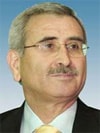 TURKEY
TURKEY
DURMUS YILMAZ
Grade: B
Durmus Yilmaz has had a tumultuous first year as head of Turkey’s central bank. Almost as soon as he took office last April, the country stumbled into a financial crisis when sharply growing inflation triggered an equally sharp fall in the value of the lira. The bank waded in, upping interest rates and pouring funds into the foreign exchange markets. A year on, it seems the dual assault worked. Turkey’s currency has been gradually strengthening over the past year against both the dollar and the euro, while inflation, which hit the dreaded 10% mark in 2006, is drifting back down toward the official 4% target. The central bank appears confident that Turkey is out of the woods and in September surprised markets by cutting interest rates, saying inflation had fallen faster than it expected. The cut will please those who had expressed concerns that GDP growth, which has so far held up at around 6%, might tail off if the bank didn’t ease monetary policy. With rates still at 17.25%, though, Yilmaz is counting on the economy being strong enough to weather high rates for a few more months yet.
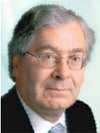 UNITED KINGDOM
UNITED KINGDOM
MERVYN KING
Grade: D
This past couple of months have been tough on Mervyn King, the UK’s now-beleaguered central banker. In September, just days after he pledged not to bail out banks that were caught in the credit crunch, he had to do just that for floundering Northern Rock. King had no choice because the Bank of England is mandated to help in such situations, but the debacle made him look terrible. That embarrassment paled by comparison, though, to the humiliation King had to endure a week later when he appeared to cave in to political pressure to ease borrowing requirements for troubled banks in the UK. Volatile market conditions had also forced the central bank to hold interest rates steady at its August and September meetings, despite its hinting earlier in the year that it would want to raise them. The only consolation for King is that inflation seems to be edging back down from its recent 3% spike to the bank’s 2% target. GDP growth, meanwhile, is faltering as high rates and the credit crunch bite. As Global Finance was going to press, King was facing increasing pressure to resign. If he does, his successor will have to not only restore balance to the economy but also restore the bank’s credibility.
ASIA
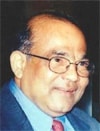 INDIA
INDIA
YAGA VENUGOPAL REDDY
Grade: A
With GDP growth approaching 10%, swelling foreign exchange reserves, a flood of inward investment, a volatile but remarkably buoyant stock market and a currency that is appreciating sharply against all the major global benchmarks, India’s central bank governor Yaga Venugopal Reddy must know what it’s like to ride a tiger. Seemingly, though, he has the chops to pull it off. Reddy has successfully tightened monetary policy while keeping inflation within the bank’s 5%-5.5% target range. Following the bank’s quarterly review at the end of July, interest rates remained unchanged, but the central bank governor responded decisively to local market conditions and potential global uncertainty by increasing the cash reserve ratio 50 basis points to 7%. An interest rate rise is anticipated this year as Reddy has clearly stated that his monetary policy stance remains focused on price stability and “well-anchored” inflation expectations without affecting economic growth and productivity. Projections for real GDP growth, which is projected to moderate to 8.4% in 2007 to 2008, remain encouraging.
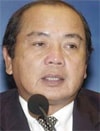 INDONESIA
INDONESIA
BURHANUDDIN ABDULLAH
Grade: A
In mid-2006, faced with gently declining inflation, robust economic growth and a steadily appreciating currency, Burhanuddin Abdullah did as most good central bankers would do and started easing monetary policy. By mid-2007 he was still easing—rates were down to 8.25% from a peak of 12.75% in April last year—and the country’s economy was still looking remarkably healthy. Inflation remains within the central bank’s 5%-7% target range for 2007 and looks set to remain under control in 2008. Domestic demand remains strong, which is expected to see real GDP increase to an average of 6.3% a year in 2007-2008. The bank’s one big fear—that lower central bank rates would trigger a slide in the value of the rupiah—has not been realized, and the general consensus among analysts is that Indonesia’s economy has hit something of a sweet spot. For Burhanuddin Abdullah, that’s a triumph, as his stated aim is to hold inflation down while maintaining interest rates at levels that are conducive to encouraging investment activity. The tricky part, of course, is keeping it that way.
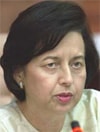 MALAYSIA
MALAYSIA
ZETI AKHTAR AZIZ
Grade: A
Malaysia seems to have successfully weathered this year’s global and regional financial turmoil, and, as usual, central banker Zeti Akhtar Aziz’s even-handed management of monetary policy has helped. Unfazed by both the Asian crisis early this year and the spillover from the US subprime crisis, Zeti has kept interest rates steady at 3.5% since last April. By effectively doing nothing for the past year or so, the central bank has been extremely effective. Malaysia’s economy is on a roll, with GDP growth for 2007 on track to almost match last year’s 6% while inflation is tame, dropping in the second quarter this year to 1.5%—its lowest level since late 2004. Meanwhile, the ringgit has been gradually appreciating in real terms against the dollar, something that observers generally agree is good for the health of the economy. The one dark cloud for the economy is that demand for its electronics output is tailing off, but Malaysia’s financial services industry is taking up the slack. Heavily promoted by Zeti, Malaysia’s Islamic finance industry is playing a crucial role in that process.
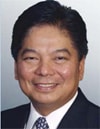 PHILIPPINES
PHILIPPINES
AMANDO M. TETANGCO JR.
Grade: A
The Philippine economy is growing at the fastest rate in two decades, while inflation has dropped well below the central bank’s 4%-5% target range. “It is very important to maintain low and stable inflation so that interest rates can be kept down,” says Amando Tetangco. Meanwhile, the country’s international reserves climbed to a record $28 billion by the end of July. A strong currency has reduced the peso equivalent of foreign debt-service requirements and also is helping to moderate inflation. “Inflation expectations are well anchored,” Tetangco says. The central bank in July cut the overnight borrowing rate by 150 basis points to 6%, the first reduction in four years, and stopped paying a lower rate of interest for commercial banks’ placements in excess of 5 billion pesos. The net effect on monetary policy was neutral as a result of the complementary moves. Remittances from overseas workers are rising, while steady rains over key growing areas have eased fears of a prolonged drought. Tetangco cannot take credit for the weather, but he deserves a top grade for helping to create an environment conducive to sustained growth.
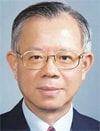 TAIWAN
TAIWAN
FAI-NAN PERNG
Grade: A
Fai-Nan Perng did not waste any time in taking action when he saw that inflation increased to 0.72% year-on-year, while the wholesale price index climbed by 7.39%. Concerned that this could translate into higher overall CPI, he raised the discount rate by 25 basis points to 3.125% toward the end of June. Even so, the central bank expects year-on-year inflation to hit 1.47% by year-end. In an effort to close the gap between the required reserve ratios imposed on Taiwan dollar deposits and foreign currency deposits, the central bank also raised the reserve ratio on foreign currency deposits. Although interest rates are expected to continue to rise, growth prospects remain strong, with real GDP growth forecast to average 4.5% a year from 2007 to 2008 fueled by domestic demand, declining unemployment—at 3.88%, unemployment has reached the lowest level since 2001—and increased investment.
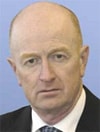 AUSTRALIA
AUSTRALIA
GLENN STEVENS
Grade: B
When Glenn Stevens stepped in to replace the near-legendary Ian Macfarlane as Australia’s central banker this time last year, the bank was struggling to retain control of a very buoyant economy. Inflation had burst through the bank’s 3% upper target level, and the country’s robust economy was threatening to push it up further. Twelve months and two quarter-point interest rate rises later, Stevens might be tempted to give himself a congratulatory pat on the back. Inflation had halved by June to a shade over 2%, and despite the influence of strong commodity prices and high global oil prices, most analysts expect both 2007 and 2008 inflation to remain within the central bank’s 2%-3% target band—just. In his first year in the job, Stevens has remained admirably levelheaded and despite the turmoil in global markets in mid-2007 has steadfastly refused to hit the panic button. If he maintains his cool in the years to come, he will have proved he is indeed a worthy successor to Macfarlane.
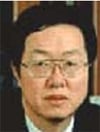 CHINA
CHINA
ZHOU XIAOCHUAN
Grade: C
As consumer price inflation stormed through the psychologically important 5% barrier in mid-2007, it became apparent that Zhou Xiaochuan, China’s central banker, might be losing control of his country’s economy. By August the official measure of inflation had reached 6.5%, the highest level in more than 10 years, fueled almost entirely by a sharp increase in food prices; by some measures, food price inflation had hit almost 20%. With observers beginning to talk darkly about impending financial crises and the potential social unrest that might be triggered by high food prices, the central bank is also struggling to rein in economic growth, which is raging along at an annual clip of more than 11%. To be fair, the level of political influence over the central bank means Zhou is not playing with a full deck when it comes to managing monetary policy. Nevertheless, he has been treading too lightly in his attempts to prevent the economy’s overheating: Four interest rate rises so far this year have failed to cool the economy. Unless it acts more decisively, the central bank might find itself accused of being part of the problem China faces, rather than part of the solution.
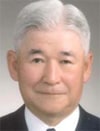 JAPAN
JAPAN
TOSHIHIKO FUKUI
Grade: C
Toshihiko Fukui took some flak last year for his decision to raise interest rates from effectively zero, where they had languished for six years. Critics asserted that the rise was premature as Japan’s economy was not strong enough to sustain it, while inflation was hardly a threat. Fukui ignored the naysayers and pushed up rates twice more to reach a lofty 0.5% by February this year. Initial signs were good, but now it seems his critics might have been right, if not for the right reasons. As he toils through his final year as Japan’s central banker, Fukui has had to watch as his country’s economic growth faltered, inflation has fallen into negative territory, and the yen has continued to weaken against other major currencies. Part of the reason for the dismal data is that Japan’s fragile economic resurgence has been sideswiped by the recent global financial turmoil. Fukui is not blameless, though, and under his watch Japan has consistently failed to live up to its potential.
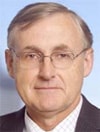 NEW ZEALAND
NEW ZEALAND
ALAN BOLLARD
Grade: D
A month after he was handed a second five-year term as New Zealand’s central banker in May this year, Alan Bollard might have been wishing he had turned down the offer. In June, attracted by New Zealand’s record high interest rates, carry-trade investors were buying New Zealand dollars at such a rate the central bank decided to wade in to try to bring the kiwi back down to earth. The bank’s intervention did take a 2% bite out of the kiwi, but within a month it was up another 5% against the US dollar. There is no doubt Bollard is in a bind. While GDP growth is expected to recover this year from last year’s paltry 1.5%, it will still be only just over 2%. Inflation, on the other hand, is still trending higher, despite a run of interest rate rises that Bollard hoped would rein in prices while not crimping economic growth. Those high interest rates have also failed to cool the country’s red-hot housing market. In August, just two months after Bollard pushed up rates to a record 8.25%, it was revealed that house prices had surged 13.3% over the prior year. Bollard has now put rates on pause. He can only hope that doing nothing will achieve more than his tinkering has so far.
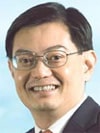 SINGAPORE
SINGAPORE
HENG SWEE KEAT
Grade: B
Consumer price inflation is expected to remain low throughout 2007 and 2008, and the Singapore dollar is expected to continue to appreciate against the US dollar, albeit gradually, as the Monetary Authority of Singapore (MAS) looks to contain inflationary pressures while ensuring the export-oriented economy remains competitive. Second-quarter figures indicated strong growth momentum in the economy, with real GDP increasing 8.6% year-on-year due to strong demand across a range of sectors. Price inflation increased slightly to 1% year-on-year in the second quarter, up from 0.5% the preceding quarter due to higher car and gas prices. However, Heng Swee Keat, managing director of the MAS, remains confident that current monetary policy will keep inflationary pressures in check and remains vigilant about monitoring the impact of any fallout from the subprime mortgage crisis in the United States.
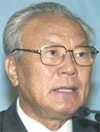 SOUTH KOREA
SOUTH KOREA
LEE SEONGTAE
Grade: B
Lee Seongtae has surprised analysts in the past by raising interest rates at a time when there seemed to be little reason to do so. In the past few months he’s done it again. Against a backdrop of subdued inflationary pressures—inflation remains stable despite oil prices rising and real estate prices increasing—and an appreciating won, he bumped up rates by 25 basis points in both July and August to reach 5%. Critics of his previous moves might be less inclined to comment this time, however, as his timing proved, in retrospect, to be pretty good. Despite last year’s rate rises, GDP growth is holding steady at around 5% year-on-year, and other economic indicators remain stable. Economic growth is expected to remain strong for the remainder of the year. Lee, who kept interest rates steady at the September meeting, is hoping his two surprise interest rate hikes will prevent growth from getting too strong.
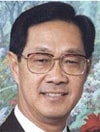 THAILAND
THAILAND
TARISA WATANAGASE
Grade: B
Many observers were expecting Thailand to suffer during this year’s financial market turbulence, but, to their surprise, the country’s economy has been largely unaffected. Part of the credit for that resilience has to go to the central bank, which has steadfastly maintained its focus on creating a stable economy despite the instability around it. Tarisa Watanagase, who has been at the helm of the bank since November last year, has presided over a steady monetary easing aimed at reining in the seemingly inexorable rise of the baht while reinvigorating Thailand’s flagging economic growth. Despite both the steady interest rate cuts and the imposition of currency controls to keep out speculators, the baht’s rise has continued, and GDP growth has weakened from last year’s 5% to an expected 4.5% for 2007. All eyes are now on 2008, when growth is expected to perk up to a healthy 6% while inflation remains at around 1.5%. Such is the bank’s confidence in these predictions, in fact, that it says it expects to be able to hold interest rates steady at 3.5% until mid 2009. Watch this space.
AFRICA & THE MIDDLE EAST
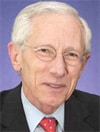 ISRAEL
ISRAEL
STANLEY FISCHER
Grade: A
Stanley Fischer, formerly of Citi, has been central bank governor for the past two years, and in that time he has had to combat the effects of war on the Israeli economy. Last year he did that by raising the benchmark lending rate to counter the inflationary effects of a lower shekel. This year, despite government instability, the central bank has maintained a focus on keeping inflation within the 1%-3% target band. With the consumer price index (CPI) rising by 1.1% in July and forecasts predicting inflation for 2007 will reach 3%, Fischer responded swiftly in August with a 25 basis point increase in the interest rate to 4%, effective from September. He also appears to be getting his way on his reformist agenda with the potential passing of a new Bank of Israel law that will enshrine the concept of price stability as the central bank’s major goal and help establish a monetary policy committee including not only internal but external advisers.
SAUDI ARABIA
HAMAD AL-SAYARI
Grade: B
One of the key characteristics of a successful central banker is having the nerve not to micromanage the economy. Saudi Arabia’s central banker, Hamad Al-Sayari, certainly has that. Having been in the job for almost a quarter of a century, Al-Sayari has the experience to know when to keep his hands off the levers of power. Granted, the economy he helps manage is far from the most complex organism, but he is still to be commended for his evenhanded, non-interventionist approach. This year has been relatively tumultuous for the rock-solid Saudi economy as the recent global financial turmoil has helped fuel inflation, which is creeping up from last year’s 2.2% to an anticipated 3% for the full-year 2007. At the same time, Saudi Arabia’s efforts to support oil prices by cutting supply are crimping GDP growth, which is expected to slip slightly from 4.2% over the full-year 2006 to 4% in 2007. Undaunted, the central bank is holding rates steady at 5.5% and is confident that next year’s anticipated increase in oil production will help bring GDP growth back up to a healthy 6%.
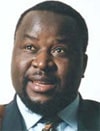 SOUTH AFRICA
SOUTH AFRICA
TITO MBOWENI
Grade: B
Despite his best efforts, Tito Mboweni appears to be losing ground in his long campaign against inflation. Last year he caused some raised eyebrows with his aggressive interest rate rises aimed at keeping inflation within the target range of 2%-6%. It now appears they were not draconian enough. Inflation is still on the rise—it crept up to 6.4% in May and June this year—and is showing no sign of being about to decline. In mid-August Mboweni fought back, bumping up the repo rate 50 basis points to 10%. Further tightening is anticipated this year, with inflation projected to fall to within the target range in the second quarter of next year. Mboweni is also keeping a watchful eye on any fallout from the US subprime mortgage crisis on investors’ overall risk appetite, although at this stage the impact has been limited.
Dan Keeler



